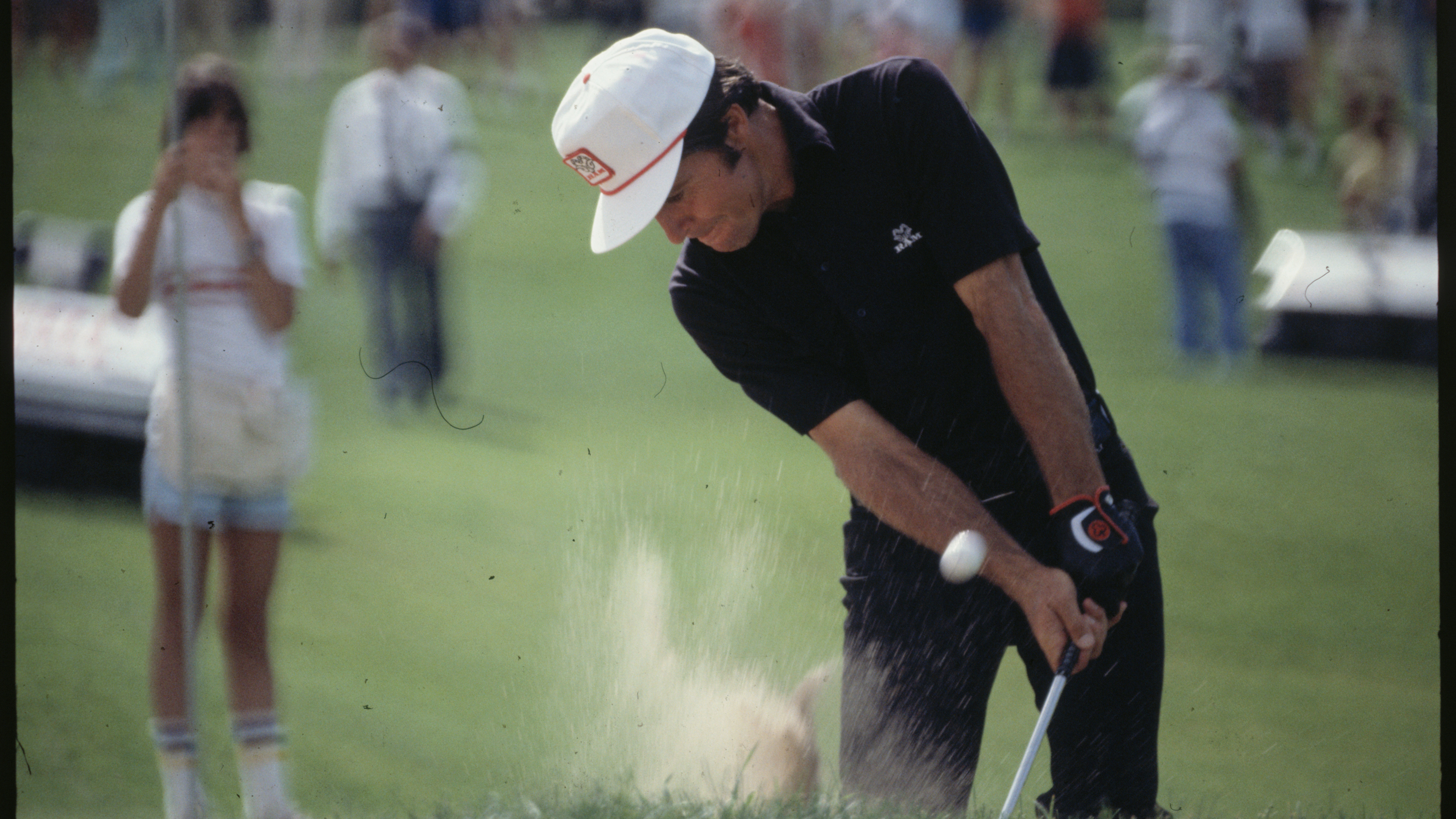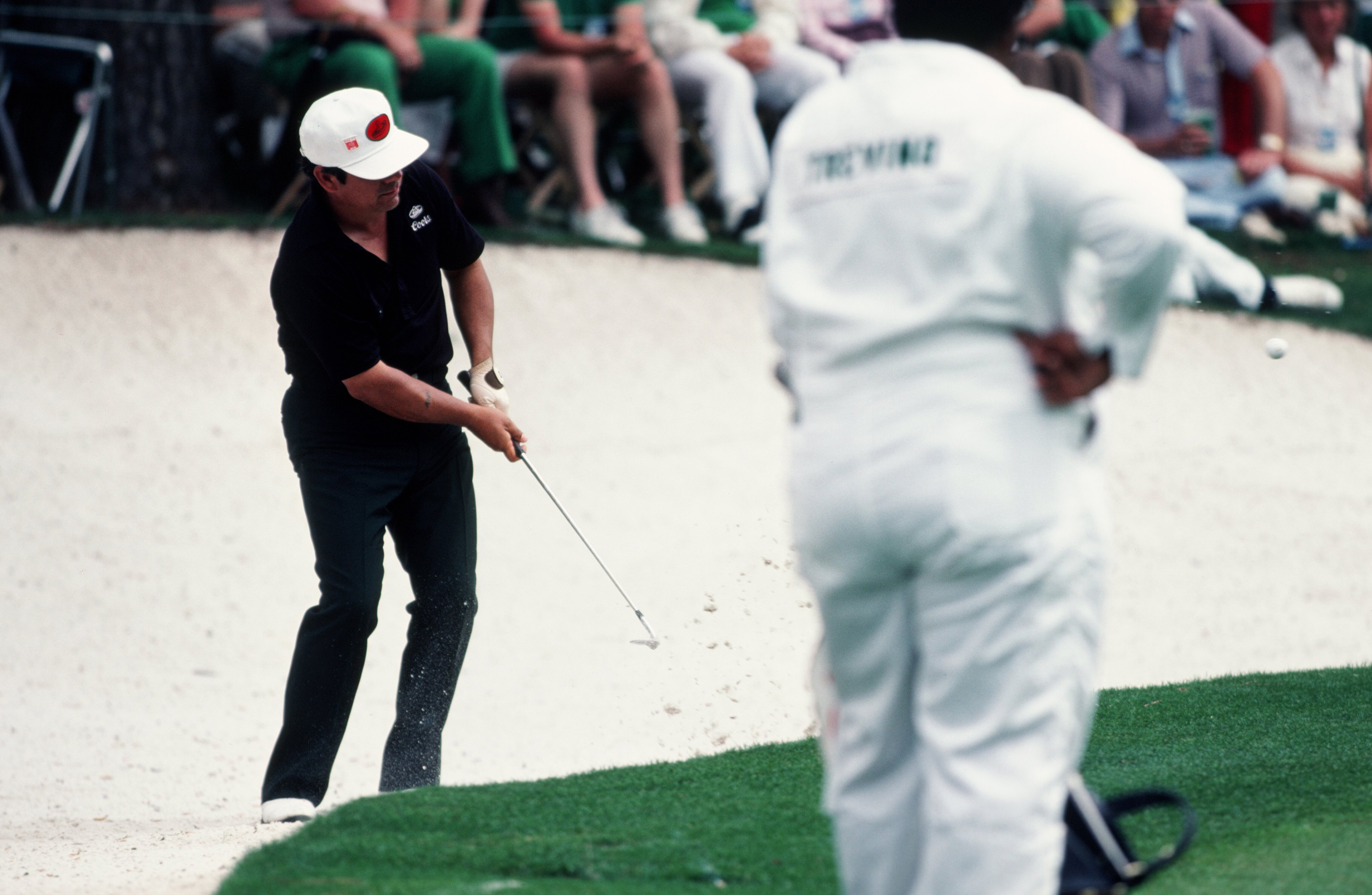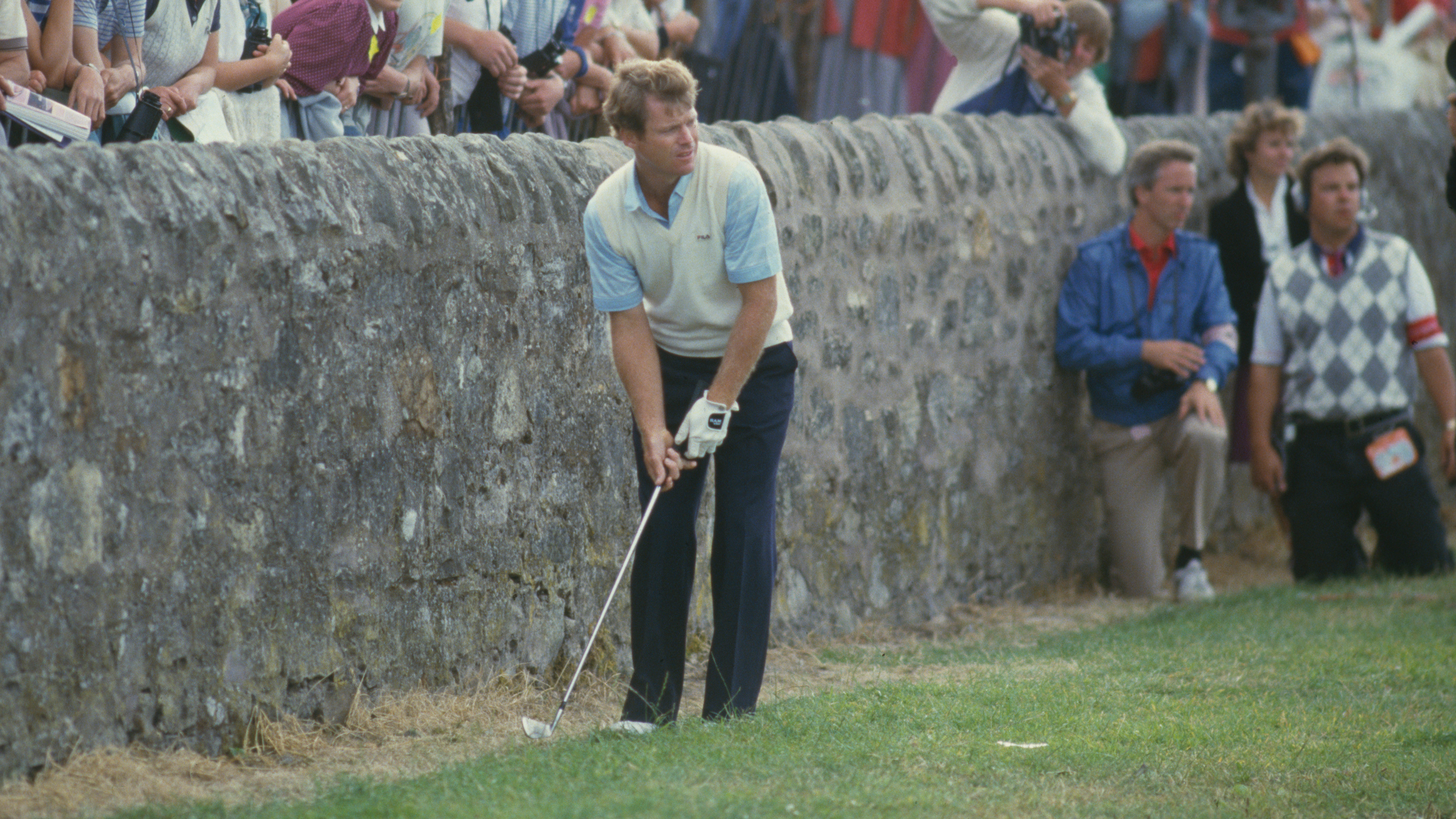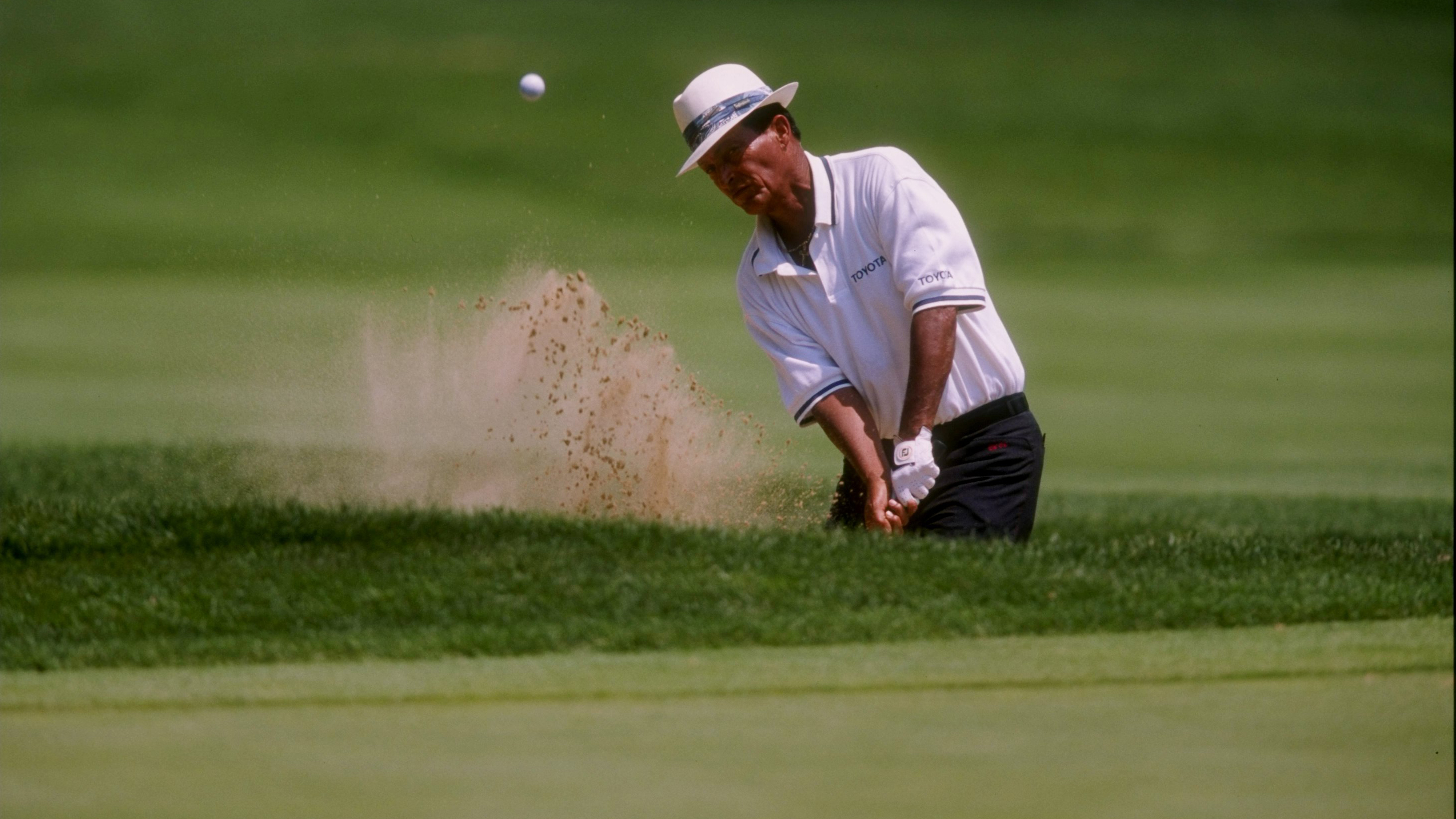Best Short Game Players Of All Time
A look at eight players who've displayed a level of genius around the greens, wielding a wedge like a magic wand.


Subscribe to the Golf Monthly newsletter to stay up to date with all the latest tour news, equipment news, reviews, head-to-heads and buyer’s guides from our team of experienced experts.
You are now subscribed
Your newsletter sign-up was successful
Want to add more newsletters?

Delivered daily
Daily Newsletter
Sign up for all the latest tour news, gear reviews, head-to-heads and buyer’s guides plus features, tips from our top 50 coaches and rules advice from our expert team.

Once a week
Kick Point
Sign up to our free Kick Point newsletter, filled with the latest gear reviews and expert advice as well as the best deals we spot each week.

Once a week
Women's Golf Edit
Sign up to our free newsletter, filled with news, features, tips and best buys surrounding the world of women’s golf. If you’re a female golfer, you won’t want to miss out!
The gulf between professional and amateur golfer is perhaps at its widest when it comes to the short game. The ability of the pros to salvage pars from around the green can be almost unbelievable to those who know just how difficult it is to master the skills they display.
Mere mortals can only marvel at those virtuosos able to execute a flop-shot from a tight lie, extricate themselves from a plug mark in the face of a bunker or consistently lay the ball beside the cup from the most awkward of positions. To see players who wield a wedge like a magic wand is one of the most impressive sights in golf. Short game is about creativity and imagination as well as technique. The very best short game exponents in the history of the game have displayed a blend of vision, precision and dexterity.
The following is a selection of the most formidable short game maestros in golf’s recent past. The assembled are players whose proficiency from 50 yards in has captivated golf fans as well as helped to capture numerous tournament victories. These are men who relish the prospect of a difficult pitch and, more often than not, have risen (and continue to rise) to the challenge.
Luke Donald

Smooth, consistent and highly effective, Luke Donald’s short game is absolutely “text-book.” Arguably, nobody in the history of golf has demonstrated such a perfect technique around the greens and many of today’s short game experts point to Donald’s action as the one to try and emulate.
The number of holed short shots Donald has produced over his career has been incredible. Perhaps the most famous of those came in the 2011 Masters when he chipped in from in front of the final green to keep his chances of victory alive.
It’s from the sand, though, that Donald is a class apart. He led the European Tour in “sand saves” for three years running from 2010 to 2012, getting up-and-down from more than 70% of greenside bunkers he found. He also topped the PGA Tour’s sand save ranking in 2009 and 2010.
Phil Mickelson

Phil Mickelson
Phil Mickelson’s skills epitomise the modern short game. His aptitude with lofted wedges has set a standard for professional golfers in recent years.
Subscribe to the Golf Monthly newsletter to stay up to date with all the latest tour news, equipment news, reviews, head-to-heads and buyer’s guides from our team of experienced experts.
Mickelson has mastered the use of the lob wedge. His ability to cut the legs from under a ball using a club with 64 degrees of loft allows him to play shots that mere mortals can only dream of.
Phil Mickelson has become synonymous with the “flop shot.” And he can play that stroke from the tightest of lies. In the Nissan Open of 2007, he found himself on the wrong side of the green on the 6th hole – on the putting surface but with a bunker between his ball and the cup. No problem: He took out his lob wedge, nipped the ball cleanly from the surface, throwing it high into the air and landing it softly by the hole.
His creativity around the greens has produced some of the most memorable shots of the last 20 years. Countless chip-ins, miraculous escapes and wonderful displays of spin control. He has the skill to make the ball check on whatever bounce he sees fit.
Outside tournament play we’ve seen him play shots that go backwards from uphill lies and, famously he played a lob shot over Dave Pelz’s head. The short game guru had such confidence in Mickelson’s talent that he stood just feet in front of him.
Mickelson just loves chipping and pitching the ball and has spent hours on the practice green perfecting his art to become a modern master of the short shot. He possesses a blend of total confidence and sublime touch that allows him to pull of strokes in competition that other pros struggle to produce in practice.
Seve Ballesteros

In the history of the game, no man has showed such creativity and deftness of touch around the greens as Severiano Ballesteros.
His skills were honed from an early age when he taught himself the game on the beach at Pedrena, using the rusted head of a 3-iron with a stick for a shaft and pebbles for balls.
His imagination around the putting surfaces and his ability to select the correct shot were second to none. He possessed a complete collection of short shots and, unlike some modern pros, was not averse to keeping the ball close to the ground if the situation demanded it.
As a party trick he could splash out of a pot bunker by opening the face of a long iron and, with a wedge in his hands, he was deadly. No position was too difficult for Seve. In fact, the tougher the shot the more he relished the challenge and, invariably, the more spectacular the result.
The first glimpse most golf fans had of Ballesteros was at The Open Championship at Birkdale in 1976. The dashing young Spaniard carried a two-shot lead into the final round but was overhauled by Johnny Miller. Although he lost that battle, he played the shot of the championship – the one everybody remembers. From a seemingly impossible position on the final hole, he played an audacious chip that ran through a narrow gap between two bunkers and ended just a couple of feet from the hole.
Seve’s short game prowess helped him to win two Masters titles in 1980 and 1983 as his sublime feel around the testing putting surfaces came to the fore.
His final Major came at the site of his first – Royal Lytham & St Annes. He, fittingly, sealed the 1988 Open Championship with another perfect pitch. From an awkward spot to the side of the final green, with the world willing him on he played the most beautifully delicate chip that all but went in the hole and secured a third Open crown for the great Matador.
Gary Player

Gary Player is one of the most determined and dedicated professionals in the history of golf. In his early career he followed a fitness and nutritional programme that were decades ahead of their time.
He worked extremely hard on his technique and strength. He also dedicated an enormous amount of time to perfecting his short game. Acquiring a dazzling array of pitch and chip shots that would help carry him to nine Major titles.
It was from sand that Player truly excelled and he must be considered one of, if not the greatest bunker player of all time.
Once when practising in Texas, a local in a Stetson hat stopped to watch. The first bunker shot Player hit went into the hole. The Texan said, "You got $50 if you knock the next one in." He did. Then, "You got $100 if you hole the next one." In it went. As the Texan paid up he said, "Boy, I've never seen anyone so lucky in my life." Player responded, "Well, the harder I practice, the luckier I get."
Perhaps Player’s most memorable short shot came at the Open Championship of 1974 at Royal Lytham & St Annes. Coming to the final hole, Player had a comfortable lead, but his second shot went long and came to rest just a couple of feet from the edge of the iconic Victorian Clubhouse. Unperturbed, Player turned his putter backwards and played a beautiful, left-handed chip-and-run, back onto the putting surface.
Lee Trevino

Tied for the lead with Tony Jacklin with two holes to play in the 1972 Open Championship at Muirfield, Lee Trevino was in trouble. Jacklin had a putt for a birdie four on the 17th, while “Super Mex” was through the back in four. But the Texan played a sublime chip, holing out for a five. Jacklin was rattled and three putted. Trevino went on to win by one.
A tenacious competitor, you could never count Trevino out of any hole. He had the vision and determination to escape from almost any predicament.
Trevino was a master of improvisation and he would use a multitude of techniques to get the ball adjacent to, or in, the hole. He perfected the “Texas Wedge” shot – using a putter from off the green on firm playing surfaces (like those encountered at the Open Championship.)
At the other end of the short game spectrum, he was also famous for the “burning wedge” shot. This was a low, fizzing pitch that would skip a couple of times on the green before spinning to a halt or coming back.
Tom Watson

Tom Watson’s book “Getting Up and Down – How to save strokes from 40 yards,” is one of the “go-to” texts for students of the short game, or for anyone looking to simplify their technique around the greens. In it he takes the process back to basics and carefully outlines the mechanics behind effective short-shots.
Well-known as a fantastic ball-striker, Watson was also one of the best scramblers in the business. He was so adept at saving par from off the green that people began to refer to such escapes as “Watson pars.”
Unlike, say, Phil Mickelson who favours the spectacular shot option, Watson’s strategy from short range was to keep it simple. Economical with his swing length, he tended to favour a chip that released to a full-blooded flop or hard-spinning pitch.
His most famous chip came in the U.S. Open of 1982 at Pebble Beach when, tied for the lead with Jack Nicklaus with two to play, he holed out from thick rough to the side of the par-3 17th green. It was an incredibly difficult shot, from tangled grass and with little green to work with. But Watson made it look easy. He took a relatively short backswing, accelerated through and under the ball, popping it up and landing it quickly on the putting surface. It rolled out straight into the flag and dropped for birdie. Watson pointed at his caddy and set off on a lap of honour around the green. Under the utmost pressure it was, perhaps, the greatest shot in US Open history.
Chi Chi Rodriguez

Working as a caddy through his early teenage years, Juan “Chi Chi” Rodriguez taught himself to play the game of golf using a branch taken from a guava tree as a club and a tin can as a ball. From tee to green his technique was very much his own and his individual style was also in evidence around the greens. He was a highly creative player and would take on shots that few others would consider attempting. He possessed extremely fast hands and was renowned for being able to accurately control the spin on the golf ball.
He may have been given natural touch, but he also practised hard at the short game and once said, “No one has such luck around the greens as one who practices a lot.”
The Puerto Rican was an extremely adept bunker player and, given his relatively fragility on the greens, it was said that he would aim for the bunkers as he could get it closer from the trap than with the flat stick in his hands.
Tiger Woods

Since he burst onto the golfing scene in the 1990s, Tiger Woods has excelled at all aspects of the game, from power driving to pressure putting. But his almost preternatural ability around the greens has been where he’s displayed the most consistent brilliance.
He has, over the last 25 years, enhanced his huge natural talent with experience and golfing maturity and has developed an arsenal of shots that gives him a variety of options from almost any situation.
We’ve seen him holing from off the putting surface with nearly every club in his bag – 3-wood to lob-wedge. And the thing is with Tiger; he often manages to produce the miracle short shot when the pressure is most intense.
Everyone will remember the phenomenal chip-in on the 16th at Augusta back in 2005 that, effectively, won him a fourth green jacket. But what about the incredible pitch-in at the Memorial Tournament of 2012 - a shot Jack Nicklaus described as “the most unbelievable” he had ever seen? Or, the ridiculous chip-in at the final hole of the 2001 World Cup that forced a playoff?
He may have had issues with his chipping, but some of the short shots he played at The Masters showed his rare talents. Tiger has repeatedly produced the most sublime short shots at crucial moments. It’s visible in his eyes when he weighs up any pitch or chip he stands over, he’s not trying to get it close, he’s trying to get it in the hole.

Fergus is Golf Monthly's resident expert on the history of the game and has written extensively on that subject. He has also worked with Golf Monthly to produce a podcast series. Called 18 Majors: The Golf History Show it offers new and in-depth perspectives on some of the most important moments in golf's long history. You can find all the details about it here.
He is a golf obsessive and 1-handicapper. Growing up in the North East of Scotland, golf runs through his veins and his passion for the sport was bolstered during his time at St Andrews university studying history. He went on to earn a post graduate diploma from the London School of Journalism. Fergus has worked for Golf Monthly since 2004 and has written two books on the game; "Great Golf Debates" together with Jezz Ellwood of Golf Monthly and the history section of "The Ultimate Golf Book" together with Neil Tappin , also of Golf Monthly.
Fergus once shanked a ball from just over Granny Clark's Wynd on the 18th of the Old Course that struck the St Andrews Golf Club and rebounded into the Valley of Sin, from where he saved par. Who says there's no golfing god?